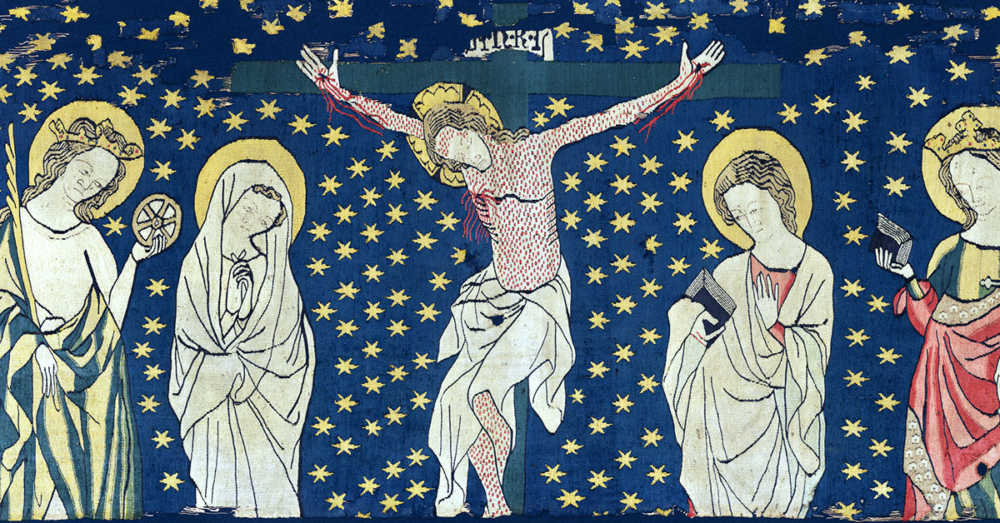We run our website the way we wished the whole internet worked: we provide high quality original content with no ads. We are funded solely by your direct support. Please consider supporting this project.

Why Did Jesus Cry Out that God Had Forsaken Him?
At the climax of Jesus’ suffering on the cross, Jesus cries out: “My God, my God, why have you forsaken me?” (Mt 27:46) It’s a jarring moment in the narrative. To forsake is to abandon. Did Jesus really believe that God had abandoned him? Was Jesus right about this? If he was right, what does that say about God? If he was wrong, what does that say about his connection with the father (about his standing within the trinity)?
Jesus had committed himself to doing the Father’s will, even though he anticipated it would involve a cup of great suffering (Mt 26:39). Paul tells us that, on the cross, “God made him who had no sin to be sin for us” (2 Cor 5:21). This means that, on Calvary, the all-holy God was totally saturated in our sin! Not only that, but Paul also teaches that, on the cross, “Christ redeemed us from the curse of the law by becoming a curse for us” (Gal 3:13). One who is cursed is estranged from God, which is why, when Jesus took on with our cursed state, he cried out: “My God, my God, why have you forsaken me?” (Mt 27:46). Jesus experienced the separation from God that we deserved, while experiencing abandonment on an infinitely more profound level than we could ever experience. And this means that, on Calvary, God, whose very nature is the perfect, loving union of Father, Son and Spirit, experienced the profound disruption of our God-forsakenness.
Yes, Jesus was abandoned, but the abandonment was a momentary horror that Jesus offered himself into. Furthermore, it was a rupture that overthrew Satan (1 John 3:8), and established our salvation (Hebrews 9:27-28). It was, to summarize, the greatest possible act of love.
Category: General
Tags: Cross, Crucifixion, The Cross
Verse: Matthew 27
Related Reading

Avoiding the “S” Word: Sin
In our culture today, we don’t like to talk about sin. While most of us have a deep sense that something is off, that something is wrong with ourselves and the world, and many know or feel that they are guilty of something, this kind of talk is avoided. Instead, we evaluate ourselves by our…

The Sine Qua Non of the Kingdom
In contrast to the habit of judgment which I challenged in the previous post, God calls his people to love the way that God loves. But what exactly does this mean? People have a lot of screwy ideas about “love” today. We use the word “love” to mean a lot of different things, from sexual…

The Hope of the Cross & Resurrection
In a real sense, God has already “raised us up with Christ and seated us with him in the heavenly realms” (Eph 2:6). And while “we do not see everything subject to [us],” the truth of the matter is that, in Christ, we have already been restored to our rightful place as co-rulers with Christ.…

The Rule of Love
The traditional confession that Scriptura sacra sui ipsius interpres (“Sacred Scripture is its own interpreter”) presupposes that there is one divine mind behind Scripture, for example. Moreover, Church scholars have traditionally assumed that Scripture’s unity can be discerned in a variety of concepts, motifs, themes and theologies that weave Scripture together. And to speak specifically of the…

What Changed on the Cross? (podcast)
Greg talks the sin economy and if sin actually threatens God. Episode 473 The Interview: http://traffic.libsyn.com/askgregboyd/Episode_CH_0473.mp3

How Much Does the Cross Really Matter?
The cross is as foolishness and weakness to nonbelievers, but Paul wrote that to those who are being saved it is both “the power” and “wisdom of God” (1 Cor 1:18, 24). In sharp contrast to the controlling power and wisdom that has been ascribed to God or the gods throughout history—including in much of…
